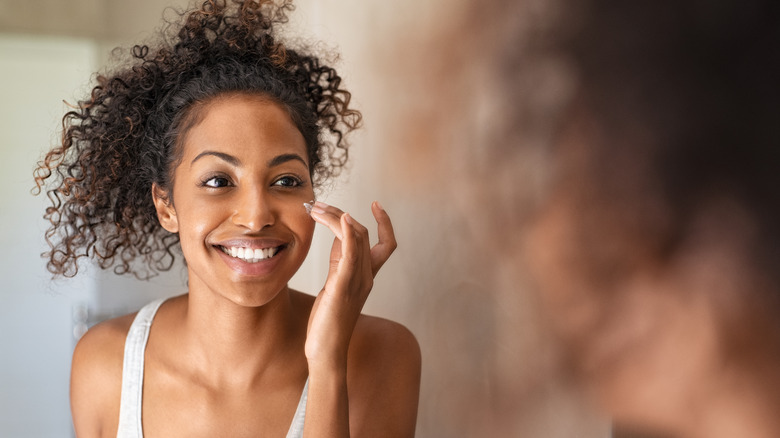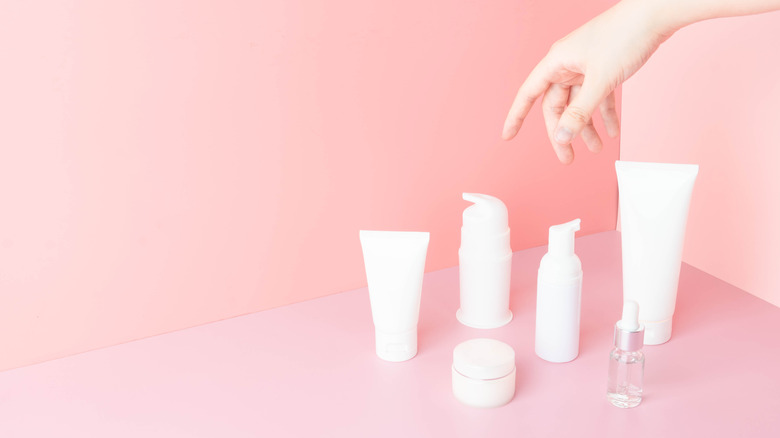Mistakes Everyone Makes When Using Moisturizer
Moisturizing is a crucial part of any skincare routine. It helps keep your face hydrated while creating a protective barrier on your skin. While using moisturizer seems simple enough, there are a lot of mistakes people make with this step of their skincare regime.
The first thing to keep in mind is that not all moisturizers are created equal. Different skin types require different ingredients to be the most beneficial. "The biggest mistake is choosing the wrong moisturizer for your skin type," board-certified dermatologist and founder of Visha Skincare Purvisha Patel, MD told Well + Good. "Oily skin generally will need a lighter moisturizer such as a gel or lotion to prevent clogging of pores and acne, while sensitive or easily irritated skin may need a cream or ointment."
Consult with your dermatologist to better understand your skin type if you are unsure which moisturizer will work best for you. Always perform a patch test when using a moisturizer for the first time. Apply the product to a small patch of skin on your jaw and monitor the area for at least 24 hours to see if you experience any negative reactions. If not, go ahead and begin using it regularly.
Skincare products need to be applied in the right order
If you use more than one skincare product on your face, they need to be layered in the correct order to offer the most benefits. When applying skincare products, "you want to start with the lightest products and work your way up to the thickest product," Joyce Imahiyerobo-Ip, M.D., director of cosmetic dermatology at South Shore Medical Center, told Self. "For example, if you have acne and are using any acne medicine, your general A.M. routine would be like this: wash, medicine, moisturizer with sunscreen."
Your moisturizer will be most effective if it is applied to damp skin shortly after cleansing. This will allow your skin to absorb more of the product and lock in hydration from the water still on your face. Finally, you may want to consider using separate daytime and nighttime products. While it's fine to use your day cream in the evening as well, night moisturizers are often thicker and contain ingredients that will help nourish your skin while you sleep. A good night cream will take advantage of the skin cell turnover and regeneration that happens while you snooze.


